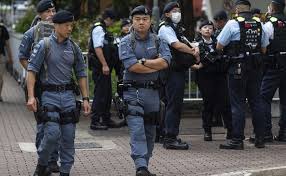In a landmark trial under Hong Kong’s Beijing-imposed national security law, a court has found 14 of 16 activists and politicians guilty of subversion. This trial, the largest of its kind since the implementation of the controversial law in 2020, has drawn significant international attention and criticism.
Background of the National Security Law
Implementation and Purpose
The national security law was imposed by Beijing in 2020 to curb dissent and restore stability in Hong Kong following months of pro-democracy protests. The law targets acts of secession, subversion, terrorism, and collusion with foreign forces.
Controversies and Criticisms
Critics argue that the law undermines Hong Kong’s autonomy and freedoms promised under the “one country, two systems” framework. The lack of jury trials and the broad definitions of crimes have particularly been points of contention.
The Landmark Trial
Scope and Scale
This trial involved 16 prominent activists and politicians accused of subversion. It is the largest trial conducted under the new security law, highlighting its far-reaching implications.
Charges and Defendants
The defendants were charged with organizing and participating in unofficial primary elections in 2020, which authorities claim was part of a plan to paralyze the government and subvert state power.
Verdict and Reasoning
Guilty Verdict
Out of the 16 defendants, 14 were found guilty of subversion. The court’s decision has been documented in a comprehensive 319-page judgment, detailing the reasoning behind the verdict.
Judicial Reasoning
The judges outlined that the actions of the defendants were part of a deliberate plan to undermine the authority of the government. This reasoning is pivotal in understanding how the court interprets the national security law.
Reactions and Implications
Local Reactions
Locally, the verdict has been met with a mix of shock, fear, and resignation. Supporters of the defendants view the trial as politically motivated, while others see it as a necessary step to maintain order.
International Response
Internationally, the trial has drawn widespread condemnation. Human rights organizations and foreign governments have criticized the verdict, calling it a blatant suppression of political dissent.
Impact on Hong Kong’s Political Landscape
Chilling Effect
The trial is expected to have a chilling effect on political activism in Hong Kong. The severity of the charges and the outcomes may deter future dissent and weaken the pro-democracy movement.
Future of Activism
Despite the crackdown, some activists vow to continue their struggle, though they acknowledge the increasingly hostile environment for political expression.
Legal and Political Ramifications
Precedent Setting
This trial sets a significant precedent for future cases under the national security law. The detailed judgment will likely serve as a reference for how subversion charges are interpreted and prosecuted.
Broader Implications
The broader implications of this trial extend beyond the legal sphere, affecting Hong Kong’s international relations and its standing as a global financial hub.
The conviction of 14 activists and politicians in Hong Kong’s largest-ever trial under the national security law marks a turning point in the territory’s political and legal landscape. As the international community watches closely, the implications of this trial will resonate for years to come.




